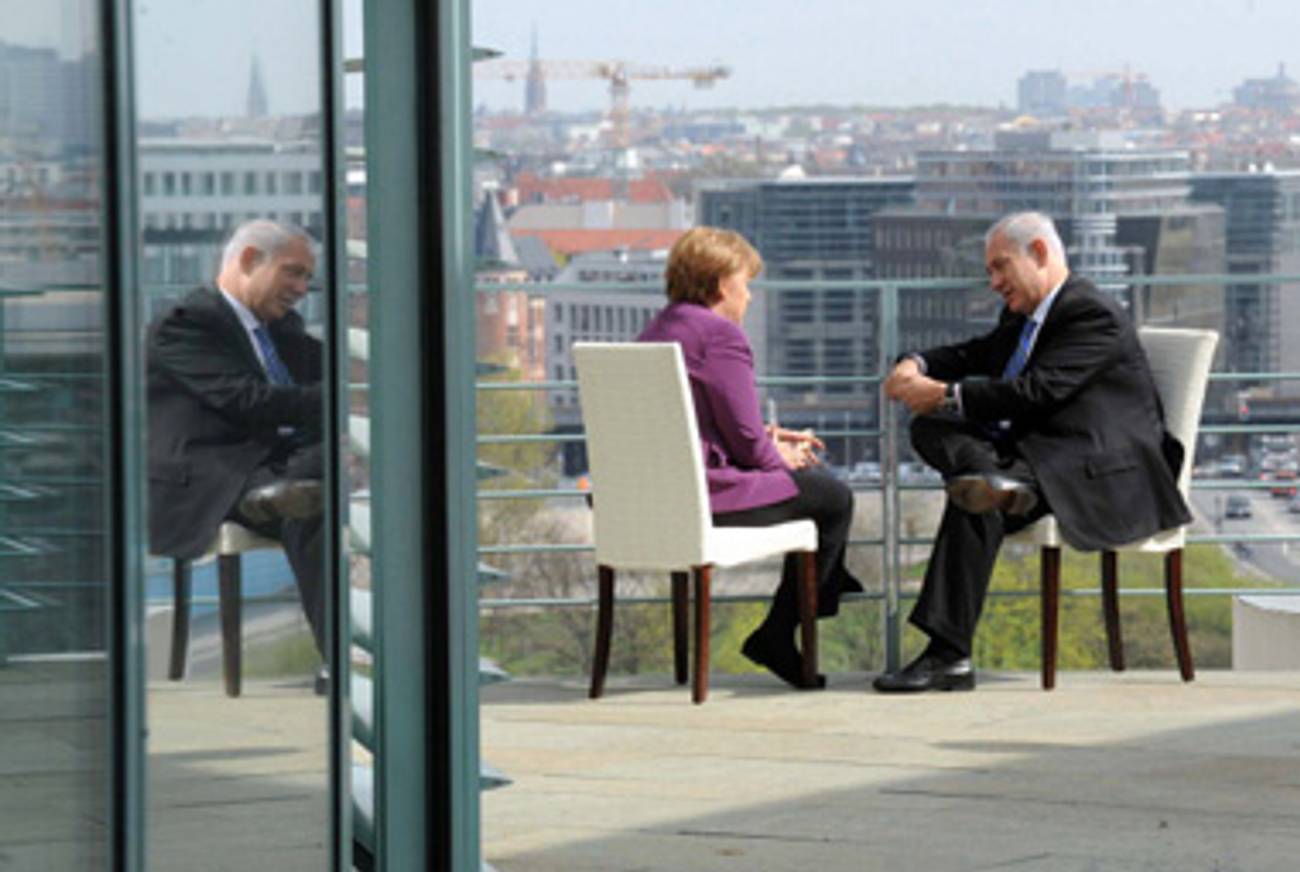For Israel, Peace or War?
In a massively tense situation, something will have to give




There is an undeniable sense of urgency. The Palestinian initiative to seek United Nations endorsement of statehood at the next General Assembly, in September, is only gaining speed—and the United States will not be able to veto this. Uncertainty abounds: Who will be in charge in neighboring Egypt? Or Syria, where the Assad regime faces daily protests? Or Lebanon, where Hezbollah has essentially taken over? Or even Jordan? Meanwhile, with the dozens of rockets coming from Gaza, some claimed by Hamas, as well as various other back-and-forths—most recently an airstrike against a Hamas commander in Sudan (and the attack on an Israeli school bus this morning)—tensions between Israel and Hamas have been higher than ever since January 2009. How are the various parties reacting to the urgency?
Prime Minister Netanyahu—who faces the additional problems of corruption allegations, an extremely fragile governing coalition, and severely diminished popularity—is in Berlin today to try to head off Germany, arguably the most influential country in the European Union, from supporting the imposition of Palestinian statehood, whether via a peace plan suggested by the so-called Quartet (of which the EU is a member) or at the U.N. Expect him to mention the new poll that found nearly one in three Palestinians approve of the gruesome Fogel family murders last month. Bibi is also reportedly planning to come to the U.S. in May, announce a plan of his own, and invite President Obama to Israel; President Shimon Peres was in Washington, D.C., this week laying the groundwork for that. They sense the urgency.
Prominent Israeli centrists are putting forth their own outlines for peace and Palestinian statehood. They may not be supporters of the Netanyahu government, but they, too, sense the urgency.
Palestinian Authority Prime Minister Salam Fayyad continues his state-building push, pledging that Palestinians will have their country by September. But the folks who are most likely to make this a difficult proposition may be Hamas, which has responded to popular calls to unify with Fatah by violently cracking down on protests. Both groups sense the urgency.
This Palestinian dysfunction as well as, again, this urgency is why, in America, prominent neoconservative Elliott Abrams suggests, in a widely circulated essay, that Israel essentially do to the West Bank what it did to Gaza in 2005: Pull out (minus major settlements), separate, vigorously police the border, and retaliate againt any cross-border provocations. Meanwhile, experienced negotiator Aaron David Miller finds little hope for peace short of a full-on initiative from President Obama—who, lest we forget, has multiple other crises in the region to worry about, plus an entire rest of the world to worry about, plus his own country to worry about, plus an election in 18 months to worry about.
Hamas needs its people distracted. Netanyahu needs to shore up his popularity. Fatah needs its biggest enemy to be Israel, not Hamas. The Obama administration, which temperamentally clearly feels for the Palestinians but which recently vetoed a Security Council resolution that would have declared Israeli settlements illegal, needs not to have to deal with Palestinian statehood while at the same time be able to plausibly throw its hands up at an impossible situation. Two things will ease this urgency, and peace is only one of them, and given the work it requires, it probably isn’t the default. If I were a betting man, I’d be less likely to bet on peace than on its very opposite.
In Israel, Time for Peace Offer May Run Out [NYT]
Officials: Israel’s PM to Push German Leader Not To Support Palestinian Statehood Plan [AP/WP]
Poll: One-Third of Palestinians Support Itamar Massacre [Haaretz]
Prominent Israelis Will Propose a Peace Plan [NYT]
Palestinian Leader Tilts at September Statehood [WSJ
Bibi’s Choice [The Weekly Standard]
How to Break the Mideast Deadlock [IHT]
Marc Tracy is a staff writer at The New Republic, and was previously a staff writer at Tablet. He tweets @marcatracy.